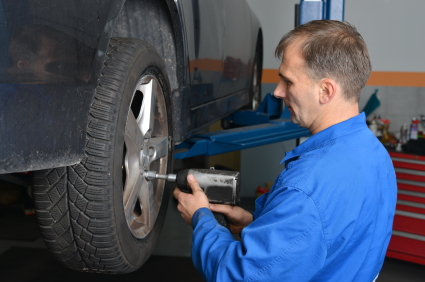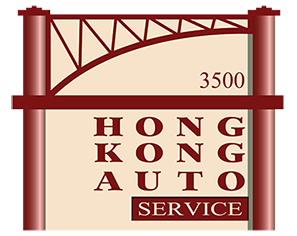Tire rotations help your tires last longer, which saves you money!
Question: I get my car’s oil changed regularly, but is it worth the time and money to get my tires rotated? Does it even make any difference?

As for the long answer about why, let’s start with the basics. Rotating your tires means moving them from one side of the vehicle to the other, moving them from front to back, or both. This is important because tires may wear differently depending on their position on the vehicle, your driving style and the condition of your suspension. Parallel parking, turning, rough, uneven roads, all of these cause uneven wear on your tires, too.
Regularly rotating your tires helps evenly distribute tire wear—helping you get the most miles out of your tires while maximizing traction on all four wheels. Gripping the pavement is what you want those tires to do, and a worn tire won’t be able to grab the road.
Another reason to get the tires rotated is that on front-wheel-drive vehicles, front tires tend to wear faster than rear tires due to added pressure/resistance from steering. Moving your tires from one position on the car to another ensures continuous even wear, essentially adding miles to the life your tires. And when you eliminate premature tire wear, that saves you hundreds of dollars because you aren’t buying new tires as often.
Here’s another important question when it comes to tire rotations: How often should you get it done? We recommend it be done every 6,000 miles, so it should be done on with our 6,000-mile service.
We’ll also balance your wheels and tires when you bring your vehicle in for a tire rotation. Wheels become unbalanced when a wheel weight falls off, when a tire spins slightly on the wheel during rapid braking or accelerating, or when the vehicle sits for extended periods.
Correcting a missing wheel weight is solved by simply rebalancing the tires. But any tire/wheel vibration should be professionally inspected because an out-of-balance wheel will cause rapid tire, steering and suspension wear. You also want to be sure you don’t have an internal failure, such as a belt separation, a safety issue that can trigger sudden tire failure.
